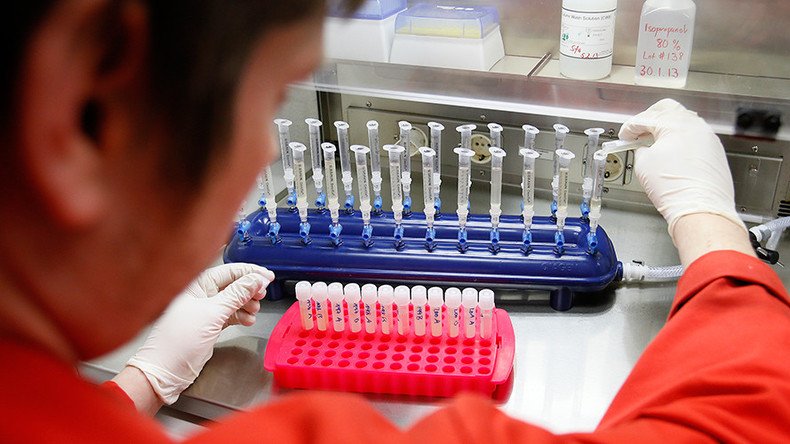Gene-editing breakthrough could spell end of hereditary disease

Scientists could soon stop genetic diseases in humans before they are even born, according to an international research team that has successfully repaired faulty DNA in a live embryo.
In the study, teams from Oregon Health and Science University and the Institute of Basic Science in South Korea injected sperm carrying the gene for hypertrophic cardiomyopathy, a common heart disease, into healthy eggs. They then applied the genome editing technique of CRISPR to successfully eliminate the faulty gene.
Pig cell implants could hold key to alleviating #Parkinson’s symptoms https://t.co/Th6m0YF62Upic.twitter.com/97UgD6niTE
— RT (@RT_com) June 12, 2017
"Every generation on would carry this repair because we've removed the disease-causing gene variant from that family's lineage,” Dr Shoukhrat Mitalipov, a key member of the team, said. "By using this technique, it's possible to reduce the burden of this heritable disease on the family and eventually the human population."
READ MORE: DNA of human embryos edited for 1st time in US – report
News of the study, published in the journal Nature, has already excited those hoping the development could open the door to banishing thousands of hereditary disorders for good. Others, however, believe it threatens to ignite fresh debate over the morality of gene-editing.
The CRISPR technology has prompted a revision of laws governing gene-editing in recent years. In February, the National Academy of Science and the National Academy of Medicine recommended an easing of blanket bans on modifying DNA in the US, but maintaining the ban on clinical use.
“We’ve always said in the past gene editing shouldn’t be done, mostly because it couldn’t be done safely. That’s still true, but now it looks like it’s going to be done safely soon,” said Richard Hynes, a cancer researcher at the Massachusetts Institute of Technology who co-led the committee, told the New York Times.
Cut with 'molecular scissors': HIV eliminated from ‘humanized’ mice in groundbreaking study https://t.co/tLptoVE96Opic.twitter.com/cv4VdsnodO
— RT (@RT_com) May 3, 2017
“What our report said was, once the technical hurdles are cleared, then there will be societal issues that have to be considered and discussions that are going to have to happen. Now’s the time,” Hynes added.
Other CRISPR researchers also weighed in on the debate.
Jennifer Doudna, a University of California, Berkeley molecular biologist, told the the San Diego Union-Tribune that the recommendations of the National Academy of Science should be respected, saying the ban on clinical trials ought to continue “until there’s broad societal consensus about the value.”












